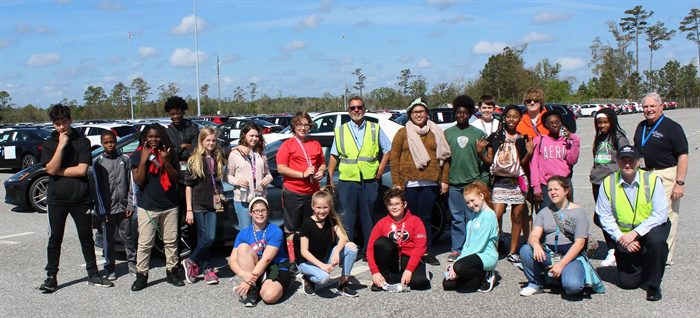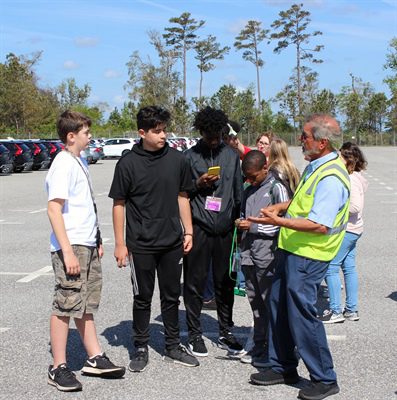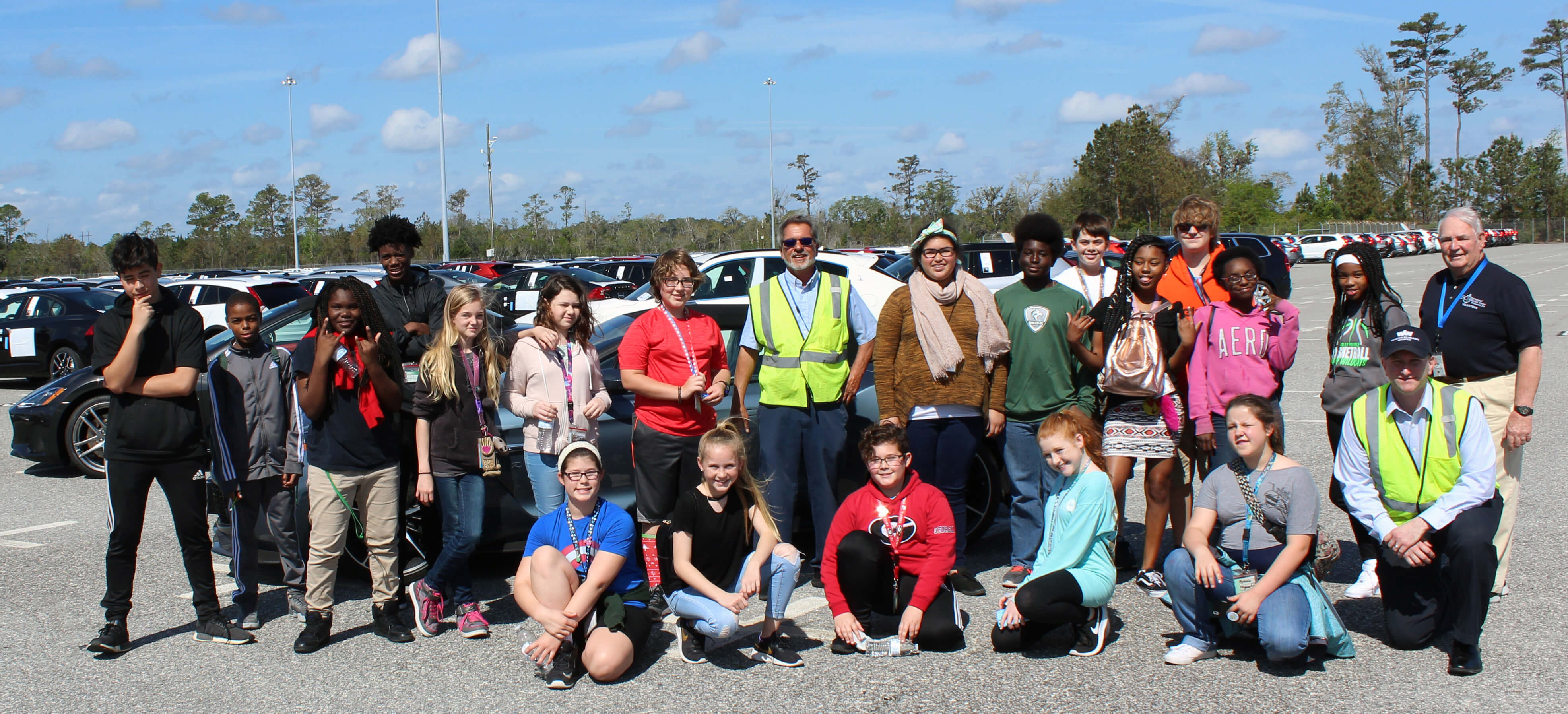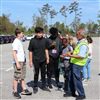
Mike Davis’ seventh-grade class stood in awe of the rows of pristine, gleaming cars parked at Wallenius Wilhelmsen Logistics’ auto processing area on Colonel’s Island Terminal.
Although they’ve grown up close to the Port of Brunswick, students were amazed that so much global commerce happens in their own backyards.
“I had no idea so much happened in little old Brunswick,” Kasey Davis said.
The visit to the Port of Brunswick was part of the Port As Classroom project — a performance-based, multi-cultural educational partnership between the International Seafarers’ Center, Georgia Ports Authority and the Glynn County School System.
The project is just one of the ways GPA ensures Georgia schoolchildren are exposed to day-to-day port operations. The Ports of Savannah and Brunswick frequently host student tours, and GPA participates in various community events throughout the year, such as CoastFest in Brunswick. GPA’s teaching resource, “Ollie the Otter’s Big River Adventure,” also works in tandem with these outreach opportunities.
Project director Jack McConnell coordinates speakers, presentations and port visits throughout the school year to give students a comprehensive overview of the maritime industry. The program develops students’ knowledge of the global logistics and supply chain, and provides insight into the future job market.
The GPA supports 440,000 jobs across the state, with more than 5,500 of those in Glynn County alone. Port-as-Classroom presents the multitude of jobs — of all types —available at Georgia’s ports.
McConnell launched the project in 2010, working with the Glynn County School Board to develop the curriculum, which focuses on math, social science and technology. The curriculum is currently offered to seventh-grade students at Risley Middle School and has previously included eighth-graders at Jane Macon Middle School. Teachers nominate prospective students for the elective course.
By incorporating the Port of Brunswick into an everyday classroom setting, students have a unique, first-hand experience. Because of their interactions with seafarers from around the world, students learn about geography, economics and international trade.
Gage Wilcox said the curriculum helped him better understand the ports, adding that the smaller class size and environment enhanced his studies.
Various guest speakers participate in the program, including Golden Isles Magazine editor Bethany Leggett, who conducts interview technique sessions so students can write profiles about seafarers. Other participants include crew members from Roll-On/Roll-Off vessels, WWL representatives and GPA personnel.

McConnell said the program wouldn’t be as successful without the participation of WWL, which routinely facilitates course material and tours. During the class’ spring visit, WWL representatives Ed Roden and Matt Henderson provided an overview of the auto processor’s operations — from balancing cargo to precisely parking vehicles (about a hand width apart!) aboard Ro/Ro vessels.
Roden and Henderson also gave students an up-close look at luxury models from Land Rover, Jaguar, Maserati, Volvo, Subaru and Aston Martin.
The program culminates in a year-end project during which students creatively present what they’ve learned about the maritime industry. In past years, this has included moveable LEGO replicas of ships, a maritime news broadcast and a 2-minute rap about seafarers. McConnell said seeing students’ imaginations and talent at work is incredibly rewarding.
Elainet Hernandez plans to put her drawing skills to work for her project, while Kasey Davis and her partners will likely build a model car (similar to the Maserati they saw on the tour). Port As Classroom has inspired students to look outside the box when it comes to their future. Several students are now considering careers in maritime-related fields because of their participation.
Bill Dawson, general manager of operations for Brunswick, said it’s exciting for GPA to open doors of opportunity to the area’s youth.
“Port As Classroom highlights opportunities in this historic industry,” Dawson said. “Classes learn about the various professions and trades within the maritime community, which contribute to GPA’s safe, efficient and smooth operations.”


